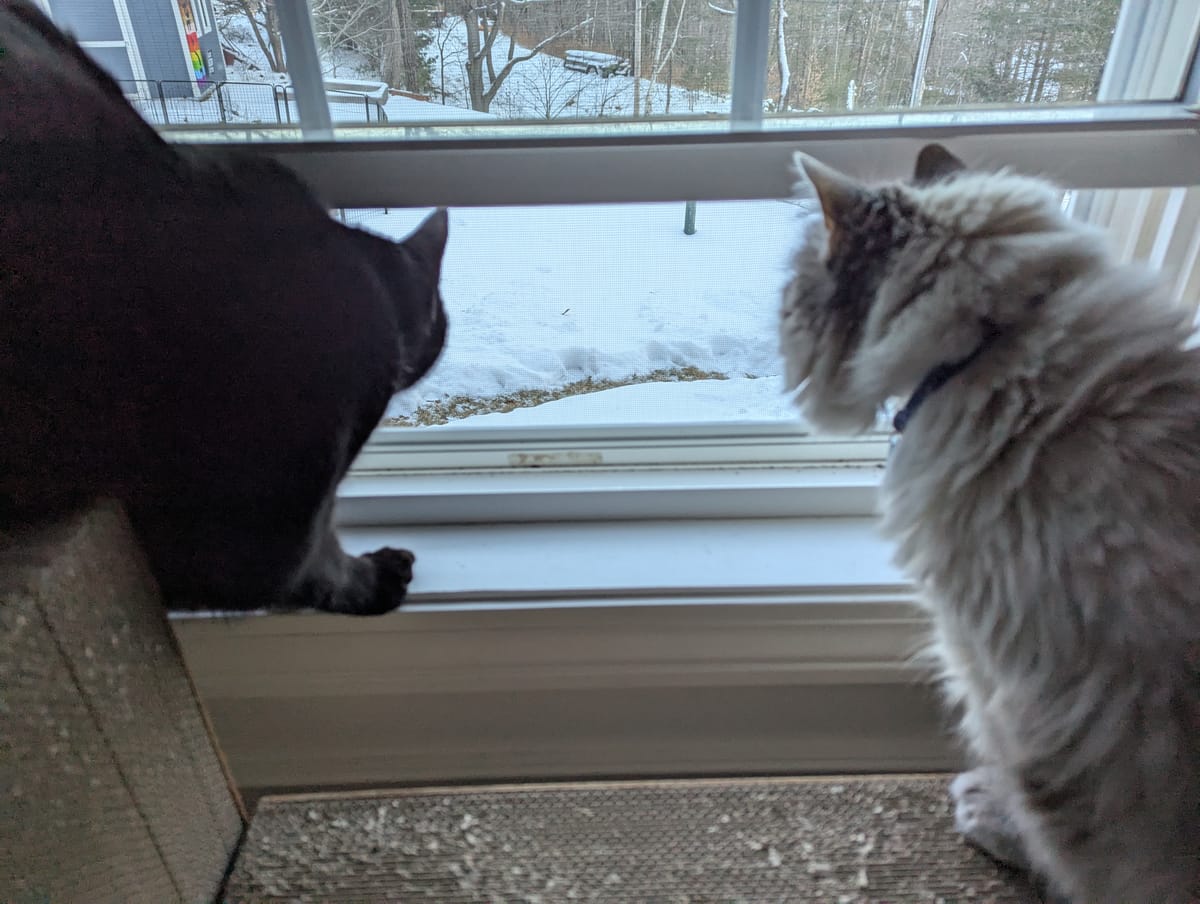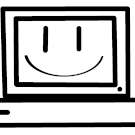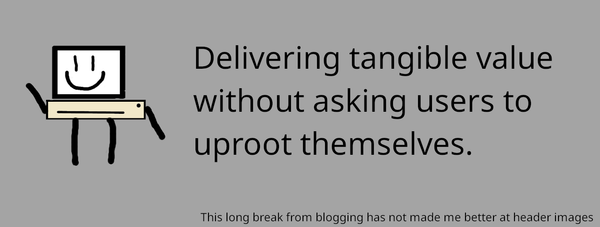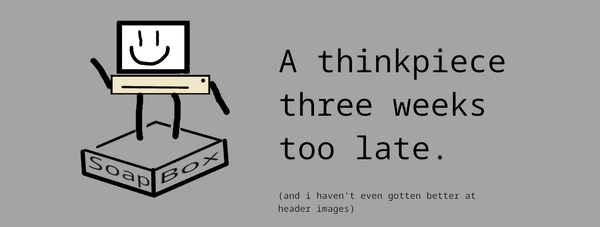Breaking Out Without Checking Out
Cutting out unhealthy social media use without accidentally checking out of society.

I haven't been posting much on social media about, uh, let's call them "current events." I believe there is an important distinction between providing people actionable and timely information and exhausting people who already feel exhausted - including yourself.
I've thought a lot about this over the past 6 or 7 years throughout various crises and decided that I don't want my presence on the Internet to contribute to doom-scrolling. And so I do my best to avoid doom-posting.
Corporate social media has trapped many of us in this cycle in the past 15 years via Frog Boiling. These platforms are designed to exploit human psychology to harvest evermore of our data, our attention, and our "engagement." We become addicted to these platforms at a detriment to our mental health.
At the best of times, it can make you feel empty, lonely, unfocused. But at the worst of times, it enters you into a cycle of panic, outrage, exhaustion, helplessness. Sometimes shame, occasionally joy.
During societal crises, social media helps you feel like you're keeping informed and like you're taking some kind of action. But ultimately it's just keeping you paralyzed, watching the enormity of a train crash you cannot possibly stop.
People in these addiction cycles are the people you'll find replying to tweets by journalists, newspapers, or politicians; outraged that they aren't making a big enough deal out of a pet issue. These are the people you will see replying to those people, accusing them of being foreign agents or bots. They're the trolls Sea-lioning you. The "#resist" crew, accelerating the outrage cycle in exchange for your engagement. Keeping you scared, telling you the world is ending. Asking, "why aren't you doing more, do you even care? Retweet to prove it."
Opt out. Unsubscribe. Block. Mute. Break free. Enough.
Trust me, you'll feel better. Take back your attention, regain your own focus, stop letting other people scream into your brain.
But how? How do you break the cycle without checking out entirely? Without disengaging from society entirely? Well, like breaking any habit or coming off any active addiction, it's a shitload of work. Especially since most of the rest of society has the same addiction so the peer pressure is unbelievable and the draw to relapse is massive.
There's plenty of reading to be done about this from plenty of people much smarter than me. And I'll be writing more about it myself, some of it via my The Web That Was posts, where I examine personal stories of the way we used to interact with the web before it became...gestures broadly.
But for now, let me leave you with a few getting started tips and some stuff to think about.
Think it over, try some of it out. Take what works, leave the rest. Share what works for you to help someone else out.
Talk to your circle, or find one
This is going to sound overblown and melodramatic, but hear me out. Talking to your friends and family about how your social media use has been impacting you is one of the most important things you can do. But it may also be one of the hardest.
Unhealthy social media use is so common, it might be hard to think of it in those terms. It's easy to think that it's only the state of the world that's impacting you, and not the medium you use to follow it. But really and honestly think about it for a moment.
Try to separate the news and the medium in your mind and determine how exactly they're impacting you. This is where it is useful to have someone to talk it out with. A frank, earnest, and ongoing conversation.
You might feel safer sharing memes or ironic posts about the topic at first and move into real conversation later. But it's very likely that at least one person you talk to will be feeling similar to you. And you can use this opportunity to get yourself an accountability buddy.
You may find yourself in a situation where you don't have anyone you feel safe enough with or close enough to talk to about this. One of the things to remember about corporate social media is that it values content and engagement over communities and relationships. If you use social media as a replacement for real socialization, you may find you don't have as many close relationships as it may seem at first.
In that case, you may find your first step needs to be finding a community you feel safe in. This is easier said than done these days, and is unfortunately outside the scope of this post. But recognizing the need is a good step.
Disengage from algorithmic feeds
...as much as possible.
Algorithmic feeds take away your control over what content you see when.
If you find youself doom-scrolling, one of the worst things you can be scrolling on is an infinite, self-reinforcing feed of what people you don't know think about things you might not even care about.
We all know YouTube autoplay and recommendations can lead people down some dark paths. Would you imagine "FYPs" on TikTok or Instagram are any different?
Now it won't always be possible to completely unplug from algorithms depending on the services you use (even on bsky I don't think you can hide your own posts from the Discover feed). And that's where some of the other tips will come in handy. But this is one tip among many to better curate the information you take in, when, and how.
Find non-social-media sources to keep yourself informed
...ideally long-form sources.
If you are a compulsive social media user, you may find yourself with an itchy feeling in the back of your brain that you might be missing something.
This can contribute to an endless scroll in a desperate attempt to "stay informed." The good news is, you can entirely replace these social media use-cases with other sources.
Now of course there are plenty of bad choices for sources, but none quite so bad as "whatever the algorithm shows me." Not least of which because "the algorithm" may now be rigged against you.
Pick a few, maybe with different focuses or perspectives. You can use mediabiasfactcheck to look into any if you want. You can probably collect these into a single place via an RSS reader, depending on what sources you choose.
Then: make sure you actually read the articles or listen to the podcasts or whatever, rather than just reading the headlines. This is another way to change your behaviors to get out of the habit if mindless scrolling and to re-engage your mind against longer form content.
Build a structure around your social media use
If you find yourself lost in doom-scrolling for hours, or pulling out your phone to cycle the same two apps every time you have a free moment, consider building in some structure or scheduling around your social media use.
Turn off notifications, consider using an app blocker or similar to limit when and how you can use these apps. Replace your social media time with something else.
Find yourself scrolling your phone deep into the night? Maybe you'd rather read a book. Vegging out with a TV show after work and get the itch for scrolling? Maybe it's healthier than snacking in some ways, but what if you took up another hobby to zone out and keep your hands busy - jigsaw puzzles, crochet. Or even something more active like model painting or blogging.
Cutting down the auto-pilot open-and-scroll ritual is hard work, but the fewer opportunities you have to doom-scroll, the less control it will have over you.
Protect your peace
We've all felt the call of "someone is wrong on the Internet." Indeed flame wars are as old as the Internet itself, and not something we can lay at the feet of Twitter.
But spending your time fighting on the Internet, especially with people not arguing in good faith, is a waste of time and energy. You may feel a brief catharsis or jolt of self-righteousness, but eventually it will leave you drained.
It's just not worth it. Mute or block, and move on. I've heard that blocking might not work quite the way I expect on some platforms these days. In that case, well short of switching to a more ethical platform (which you should do...no pressure), I'm not sure what to tell you other than to do what you can to protect your peace.
Find your purpose
This one may not be something you can do at first. Depending on how deep into things you are, it may be hard to see. You may be so exhausted and feel so helpless and paralyzed that you can't imagine what you might be able to do.
Well here's a tip: find an intersection between your interests, your expertise, and something you perceive as an issue in society. Because that's where you can have an impact.
Some people have their causes chosen for them due to circumstance, others need to discover it. But don't ever let anyone shame you for "focusing on the wrong thing" or "not doing enough." And sometimes all you can do is get by.
I have massive respect for artists, makers, and creators that are continuing their work during this time. They offer an important reminder that the world has not ended. That there are still moments of beauty, peace, joy, and safety. And that taking time to engage with your fellow humans in the act of creation is not only perfectly okay and healthy, but also legitimately an act of resistance against the hate, cruelty, and destruction in the world. All the better if their works embody the better world they hope for, because imagining a world is the first step towards living in it. Support them where you can.
I have massive respect for journalists, scientists, advocacy groups, charities, and other passionate experts. Their work informing the public, providing direct support to vulnerable populations, and advocating in political circles and courtrooms is of course invaluable. A journalist with an expertise in foreign policy may not be able to focus on domestic economic news and policies. And that's okay. Everybody can't care about everything all of the time. Support them where you can.
Even better, if you're trying to wean yourself off of social media try to find opportunities for direct action in your local area. Get involved in your community and make it one you are proud to live in. This is another one of those "easier said than done" things since many communities don't have such infrastructure for this, or maybe only at an institution that comes with baggage you are uncomfortable with. But community building needs to start somewhere. And maybe that can be you.
If you have no other ideas, start a blog where you write poorly-edited and verbose articles where you try to convince people that social media is bad, actually.
Take it day by day
As I said above, sometimes just existing is enough. Some days it will be hard to find the beauty and the joy in this world, and that's okay.
Hopefully, cutting back on unhealthy social media use will make it easier to remember that - while things might not be great right now - the world hasn't ended yet. And sometimes that's cause enough for celebration.




![A poorly-drawn cartoon computer with a happy face on the monitor stands next to text: "Don't say tariffs [x4]...oops"](/content/images/size/w600/2025/04/dontsaytariffs.png)